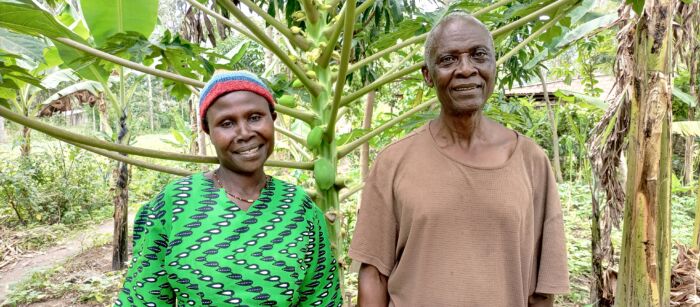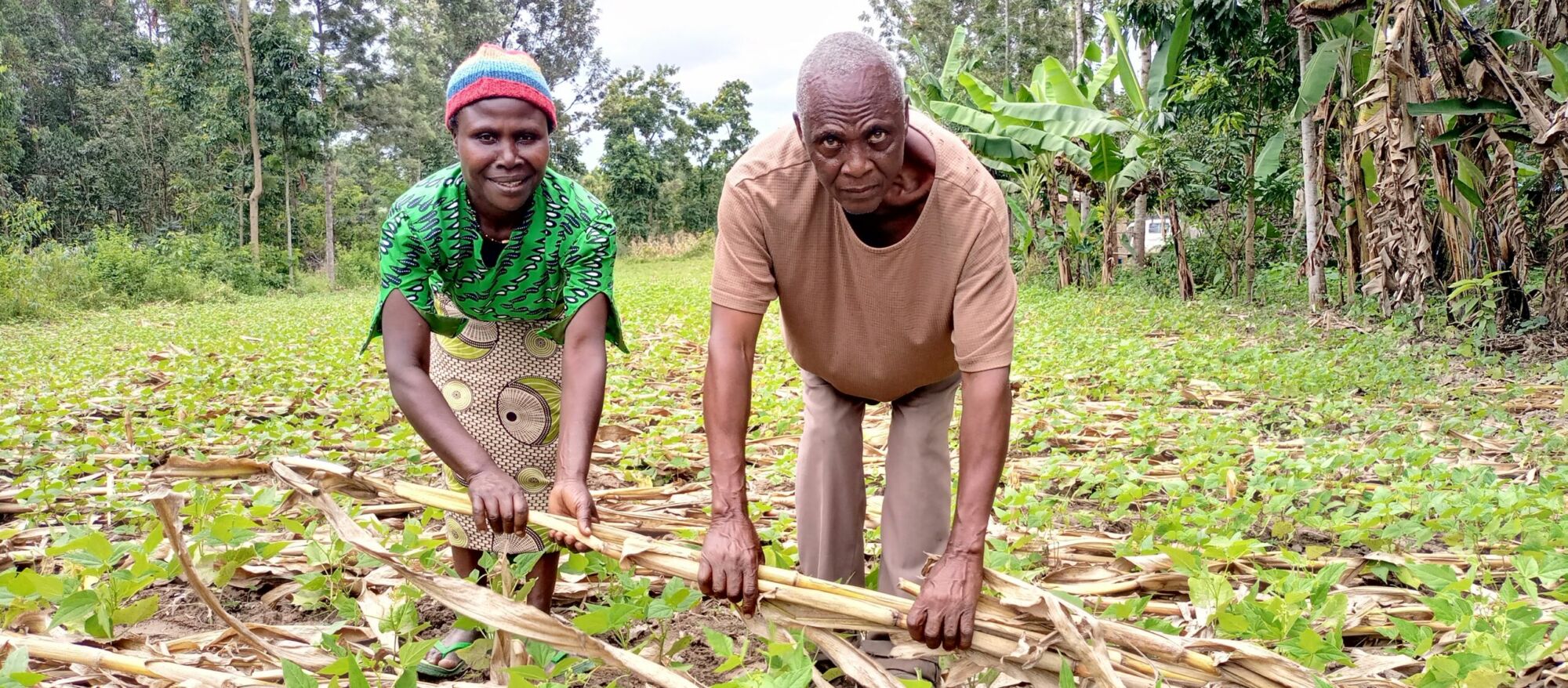A journey towards sustainable farming
We met Mary and Kosimas who are participants in the Kenya Agriculture Carbon Project (KACP). They farm two acres of land together and rely entirely on agriculture for their livelihood. They are members of the Maina Self Help Group, a local cooperative with six men and six women, affiliated with the Bungoma Agricultural Marketing Association.
”For many years, we relied on monocropping of maize, so hunger and poverty were part and parcel of us” says Mary. ”When Vi Agroforestry set foot in our location in 2009, we were hesitant to work with them. But when we saw the good teachings they were offering to farmers, we formed our group and was enrolled in their project” adds Kosimas.
Adopting sustainable practices
In 2011, Mary and Kosimas began implementing sustainable agricultural land management practices (SALMs) on their farm. They diversified their crops and adopted techniques like composting, terracing, agroforestry, nutrient management, and soil and water conservation. These practices gradually improved their farm’s productivity, allowing them to grow more food for their own consumption and generate additional income from selling surplus produce.
Diversity on the farm
Their farm is now a model of diversification. They use mulching on their bean crops to retain moisture and enrich the soil. The farm is also home to several types of trees, including grevillea, mangoes, and avocados, as well as other crops like pawpaws, vegetables, and bananas. This variety not only contributes to food security but also helps the soil and environment.

The Kenya Agriculture Carbon Project (KACP) started in 2009, funded by the World Bank’s BioCarbon Fund. It operates across Siaya, Kisumu, and Bungoma Counties in Western Kenya, working with 30,000 smallholder farmers to promote sustainable agricultural land management practices (SALMs) on 22,000 hectares of land. The goal is to help farmers adapt to climate change, boost their crop yields, increase their income, and reduce greenhouse gas emissions from agriculture. Learn more here.
